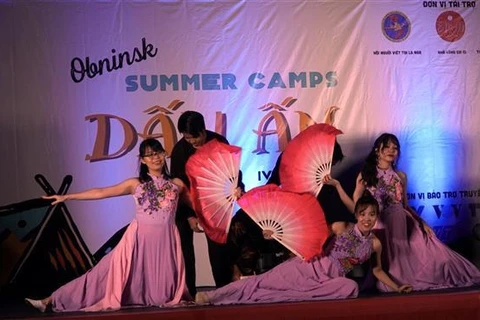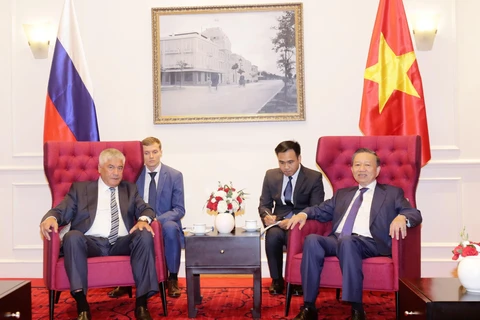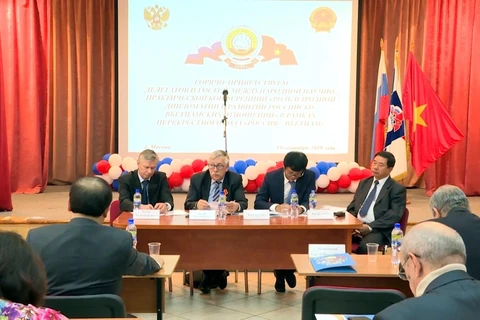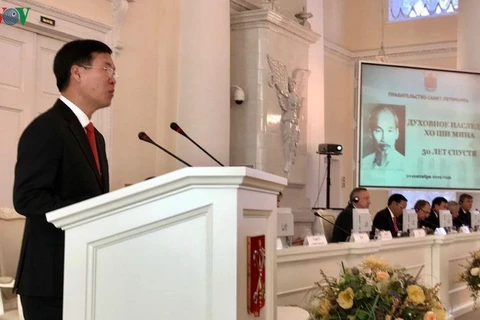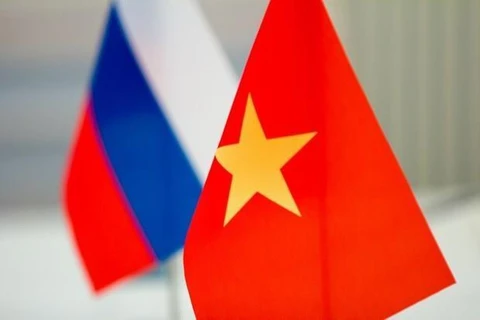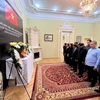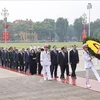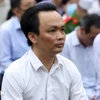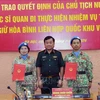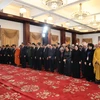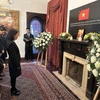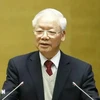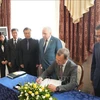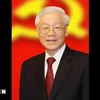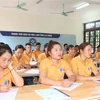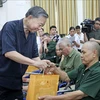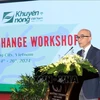Hanoi (VNA) – Many Vietnamese people in Russia have to work day and night to earn a living for their families, leaving their children growing up in the Russian culture rather than learning about their roots. The distance between the children and their fatherland keeps growing over years until it becomes too late to fix.
Knowing the mothertongue, though important to preserving the traditional culture and nurturing the love for the homeland, has been overlooked by many Vietnamese parents in Russia. And now, they start to see how bad it will be if their children do not speak Vietnamese fluently.
Vietnamese people have moved to Ulyanovsk, where V.I. Lenin was born, since 1980s. By now, about 700 Vietnamese live in the province, many of them of the second and third generations.
Most of the Vietnamese people here are merchants at local markets with a stable life, said Trinh Van Que, president of a Vietnamese association in Ulyanovsk.
The only thing that bothered him most was that the young Vietnamese people have paid very little attention to learning their mothertongue. Most of the day, they live, study and play with Russian friends and spend only few hours with their Vietnamese families in the evening.
But the children use so little Vietnamese that they don’t feel the need to talk to their parents. They even prefer eating bread to Vietnamese rice. The growing distance with the children makes the parents sometimes feel lonely right in their own home.
[Seminar highlights Vietnamese – Russian literature translation]
Que said he himself has visited some cities and provinces in Russia to survey how to open a Vietnamese language class in Ulyanovsk but the Vietnamese community has its own characteristics so those models are not suitable and applicable.
“We are looking for another approach,” he said.
A high school named after President Ho Chi Minh in Ulyanovsk has set up a twinning partnership with Phan Boi Chau Gifted High School in Vietnam’s Nghe An province and the two schools are discussing the possibility of a teacher exchange programme, he said.
“When we have professional teachers, we are sure that the Vietnamese languague classes will certainly grow sustainably,” he added.
Nguyen Ngoc Tuan, president of the Vietnamese association in Bashkortostan, also realised the loose relationship between members of Vietnamese families here. The parents have been busy all day to make a living without noticing their children are growing up in the Russian society not knowing their roots. As they grow older and older over years, it has become more difficult to teach them about the Vietnamese culture and traditions.
Nguyen Thi Hoang Yen, a Vietnamese in Moscow, also expressed her regret for not properly teaching Vietnamese to her two daughters.
Her family had a Vietnamese housemaid when her daughters were just kids, so they spoke Vietnamese quite well. They were always happy to talk with their grandparents back home on the phone. Yen still remembers how excited they were to visit Vietnam when they had a chance.
But the excitement only lasted until they graduated from primary schools. They became more busy with studying at school and playing with their Russian friends so they did not visit Vietnam as often as before. Going back to the homeland is no longer a dream as they felt so isolated there for being able to speak little Vietnamese and most of the traditional customs were too unfarmilar.
The poor procifiency in Vietnamese also limits the employment opportunities of young Vietnamese born and raised in Russia as the Vietnam-Russia comprehensive strategic partnership has been constantly deepened and expanded.
Each year, hundreds of Vietnamese people’s groups visit Russia to explore business opportunities and for tourism purpose. They need people who speak both Vietnamese and Russian fluently to assist them travelling around and can pay up to 200 USD per day for these interpreters and tour guides./.

